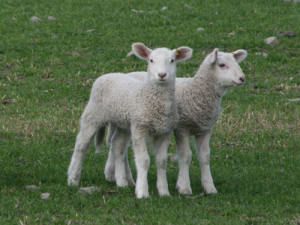Move over ham, here comes lamb
It’s official, lamb will take centre stage on Kiwi Christmas tables this year.
 Field studies are currently underway to find out if there’s a relationship between drenching pregnant sheep with long-acting drenches and lamb mortality.
Field studies are currently underway to find out if there’s a relationship between drenching pregnant sheep with long-acting drenches and lamb mortality.
Field studies are currently underway to find out if there’s a relationship between drenching pregnant sheep with long-acting drenches and lamb mortality.
The study involves trials with mixed age ewes as well as hoggets. The three-year project carried out by farmers and AgResearch, supported by the Sustainable Farming Fund, aims to provide farmers and industry with more information and confidence around parasite management practices for sheep.
Treatments were given to pregnant ewes on four South Island sheep farms at the end of August with lambing due early September.
For the hoggets involved in the trial, one flock had treatments administered mid-August and the other which is lambing later was treated in mid-September.
The two hogget trials are located in the North Island. This project arises from two studies which collectively have raised questions around the common practice of drenching adult sheep with long-acting macrocyclic lactone products for parasite management around lambing, says Agri-gate, the Ministry for Primary Industry’s newsletter.
Previous studies investigated the production benefits from drenching ewes around lambing on a collection of farms in the Wairarapa over two years. Unexpectedly, the results of those studies indicated that ewes treated with long-acting products tended to wean fewer lambs than untreated ewes.
Other research has shown that when ewes are treated with long-acting macrocyclic lactone drenches, a proportion of the drug is transferred across to their lamb.
Because these drenches are known to be toxic in young animals, this raises the possibility that lower lamb survival could be an outcome of using these products.
This Sustainable Farming Fund project will be carried out over the next three years and the results will be shared across the industry.
The project is also supported by Beef and Lamb New Zealand, AGMARDT, ANZCO Foods, Massey University, AgResearch, Landcorp, South Rangitikei Veterinary Trust Company and PGGWrightson.
A New Zealand dairy industry leader believes the free trade deal announced with India delivers wins for the sector.
The Coalition Government will need the support of at least one opposition party to ratify the free trade deal with India.
Primary sector leaders have welcomed the announcement of a Free Trade Agreement between India and New Zealand.
At Pāmu’s Kepler Farm in Manapouri, mating has wrapped up at the across-breed Beef Progeny Test.
More than 150 people turned up at Parliament recently to celebrate the 20th anniversary of Horticulture New Zealand (HortNZ).
Biosecurity New Zealand says Kiwis should continue to keep an eye out for yellow-legged hornets (Vespa velutina) over the holiday season.